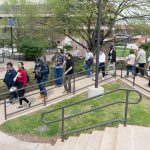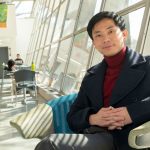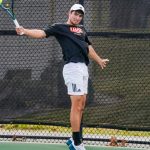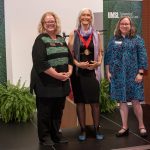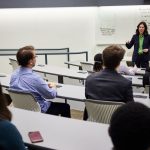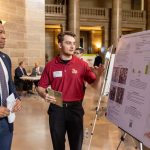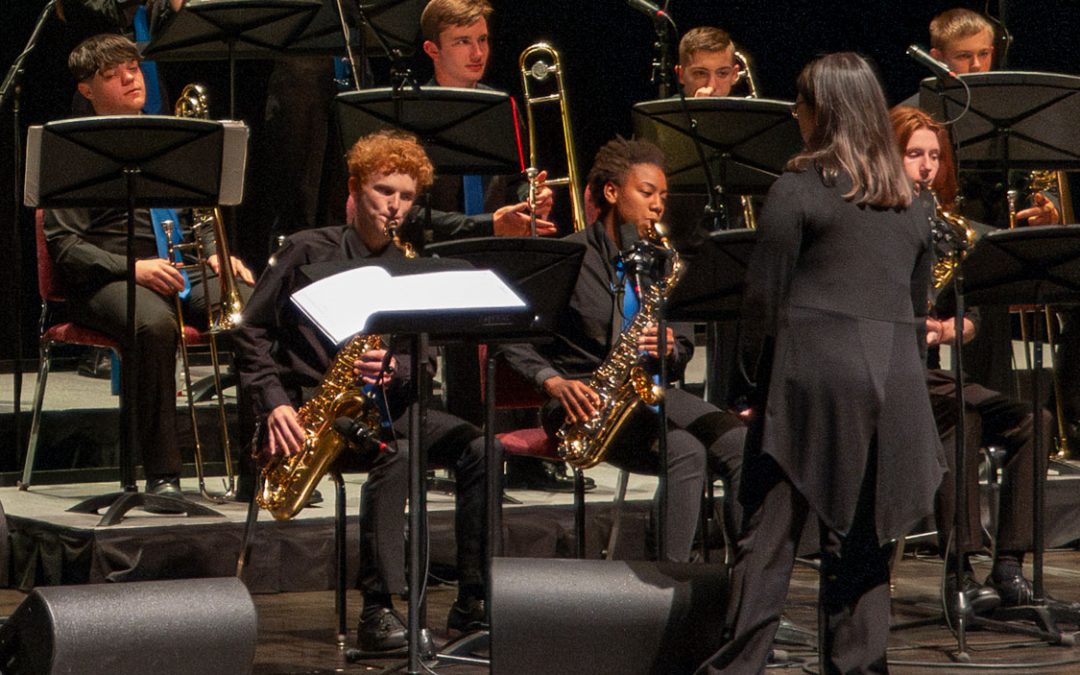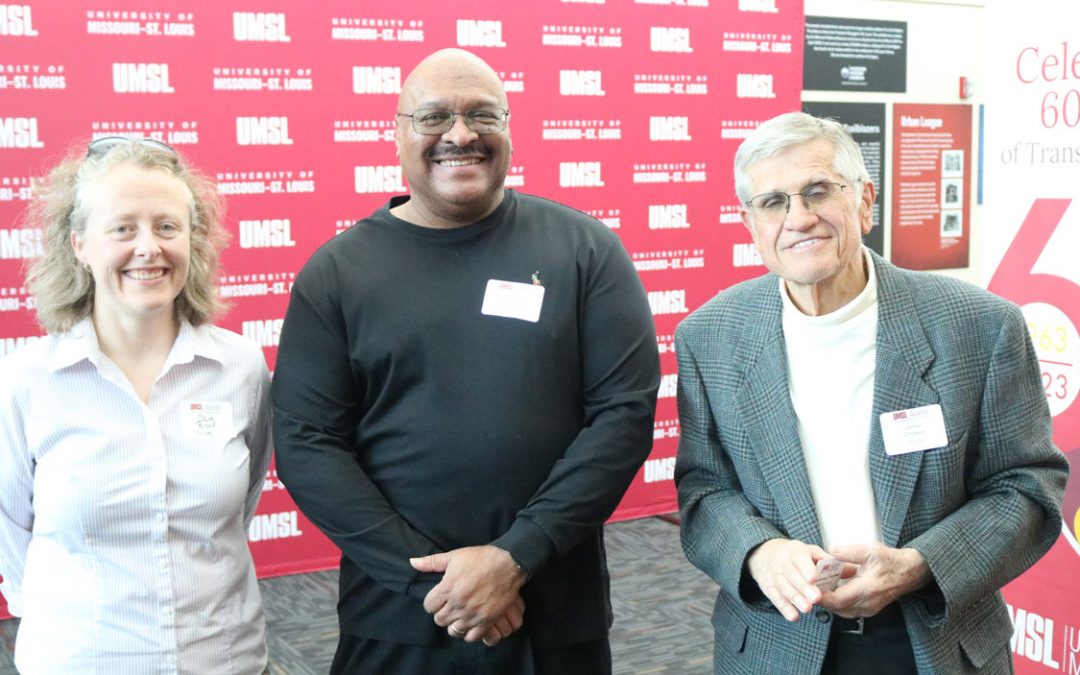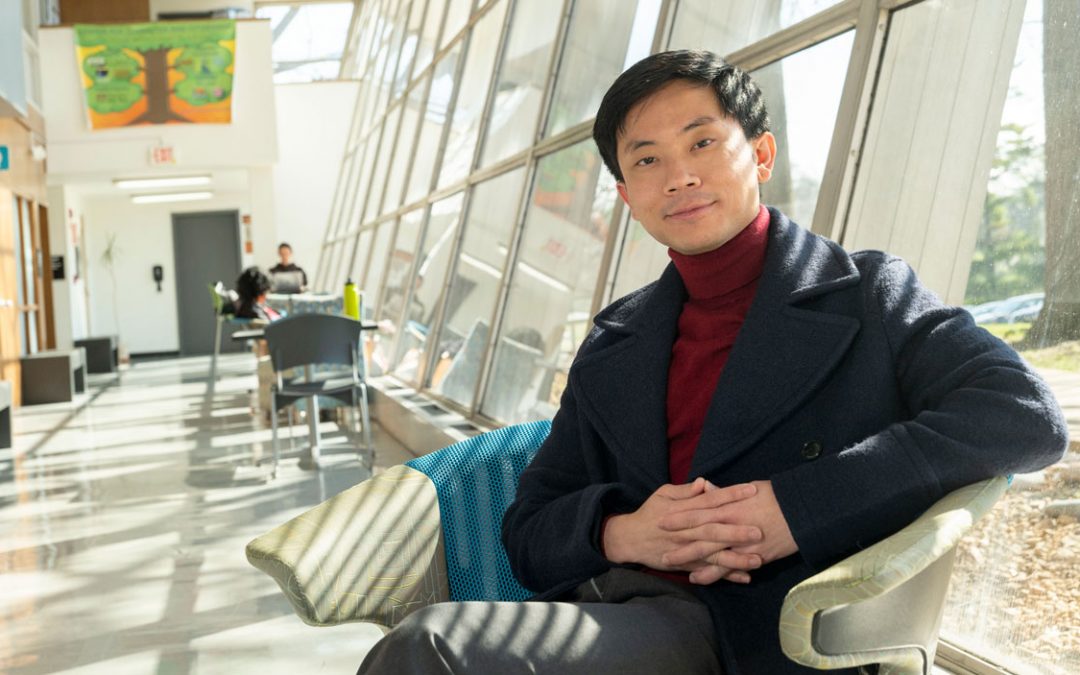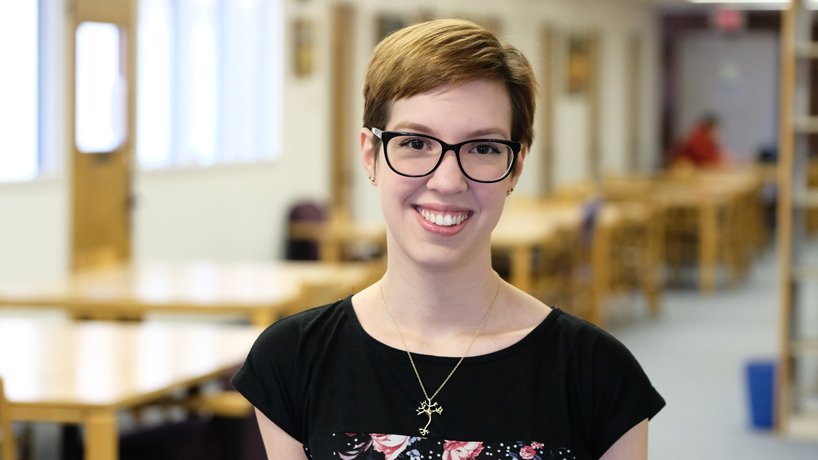
Katrina Lynn completed her bachelor’s degree in psychology last August and will begin work on a master’s this April at Tohoku University in Japan. (Photos by August Jennewein)
Katrina Lynn is months away from beginning graduate work in the Department of Developmental Biology and Neuroscience at Tohoku University in Japan.
But her journey there might never have occurred were it not for a foreign language requirement she had to meet as an undergraduate.
“I had to take a foreign language for my major, and I was like, ‘What am I going to take?’” said Lynn, who graduated from the University of Missouri–St. Louis last August with a degree in psychology. “I’ve always liked Japanese stuff, so I’m like, ‘Yeah, let’s take it. Let’s just see.’”
It’s possible that decision, made on a whim, was as significant as any she made during her time at UMSL.
“I had this really cool tight-knit friend group that we went through all the Japanese courses together,” Lynn said. “That’s what kept me going in it too. I liked the language, but it was so hard. Having your friends with you all doing the same thing helped a lot.”
Lynn, a Pierre Laclede Honors College student who earned a minor in Japanese, went on the two-week Japanese Study Tour in the summer of 2016, and she and her boyfriend stayed over an extra week at the end. They visited Tokyo, Kyoto and Nara with the group and also made visits to Fukuoka and to Peace Memorial Park in Hiroshima.
She returned home certain of one thing: She wanted to go back.
“I loved getting to use the language,” Lynn said. “I loved the culture. I was just like, ‘I’m going to go back here.’”
Lynn spent much of her last year at UMSL looking into graduate opportunities that would take her back across the Pacific Ocean while allowing her to continue studying and doing research in neuroscience. She found the Graduate School of Life Sciences at Tohoku University in Sendai, about 230 miles northeast of Tokyo.
The school, and its Department of Developmental Biology and Neuroscience, offered her the chance to immerse herself in Japanese life while still taking courses and conducting research in English.
“The school is really heavy in science and research, and they care a lot about that,” Lynn said. “I knew that’s what I wanted to do, so I thought it would be a good match.”
Lynn, who grew up in Pacific, Missouri, was a strong applicant because of her work as an undergraduate. She graduated summa cum laude from UMSL and was invited into the Honor Society of Phi Kappa Phi and inducted into the Japanese Honors Society.
She also had extensive undergraduate research experience, first with Assistant Professor Bettina Casad and later with Assistant Professor Sandra Langeslag and Professor George Taylor, the director of the behavioral neuroscience program.
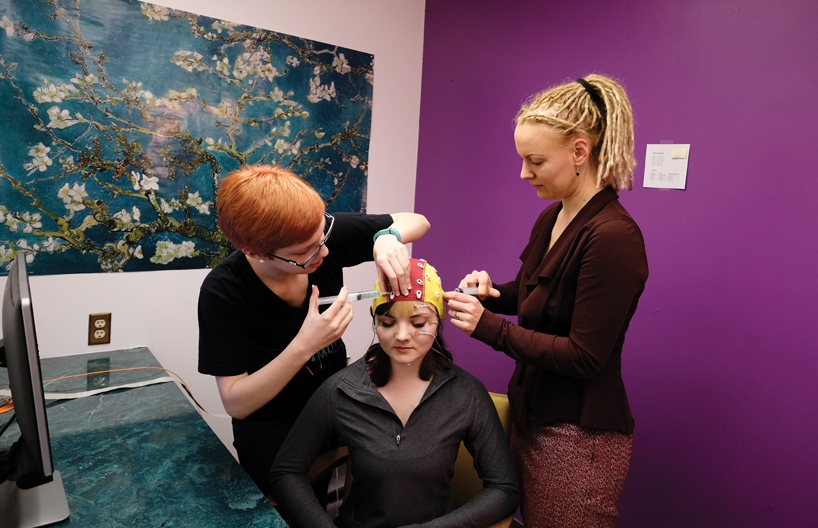
Katrina Lynn (left) gained valuable lab experience as an undergraduate at UMSL working as a research assistant for Assistant Professor Sandra Langeslag (right).
“I think it benefits both the students a lot and also the researchers,” Langeslag said of the undergraduate research opportunities available at UMSL. “For graduate school, especially research-focused graduate programs, I think it’s very important that students have some research experience because it’s almost like you either hate or love research. If you don’t have any research experience, then it’s hard to tell which category you’re in. But if a student has some research experience and then says, ‘I loved it, I want to keep doing this,’ that’s a great indication that they could be successful.”
Lynn certainly sees herself in the category of people who love it.
Her time in Casad’s lab introduced her to electroencephalography (EEG) studies measuring the electrical activity of the brain. That knowledge proved useful when she moved to Langeslag’s lab researching the neurocognition of romantic love in her junior year.
Lynn had taken Langeslag’s course on Emotions and the Brain before joining her lab.
“Katrina was very motivated and very eager to learn, which was great,” Langeslag said. “She had to learn to put on the EEG cap and learn how to instruct participants and learn how to operate all of the computers in the lab. She did that very quickly. Once I had instructed her and taught her, she did the study very independently.”
Langeslag said Lynn also proved helpful recruiting friends and acquaintances to participate in the study.
Lynn spent her senior year in Taylor’s lab, which employs behavioral biology animal models for the study of neuroendocrinology-psychopathology relations. She worked extensively with rats and mice.
“I did injections,” Lynn said. “I did handling. I did a little bit of surgery and stuff. It was a lot of hands-on.”
She hopes it’s all prepared her well for what awaits her, beginning in April, in Japan.
Before applying to the program at Tohoku, Lynn researched faculty members she might work with and wound up reaching out to Professor Hiromu Tanimoto, whose neuroethology lab uses fruit flies to study neural circuit mechanisms, which govern memory and learning.
Her work with Langeslag gave her some background in memory research, and Tanimoto was receptive to her.
“I emailed him, and he immediately got back to me and was super-duper friendly – really, really open to talking to me and being welcoming,” Lynn said.
He offered more information about his lab, set up a Skype interview so they could get to know each other and supported her throughout the admissions process.
Lynn’s been biding her time between a pair of jobs, including doing document management for a local law firm, to save money while she prepares to go abroad at the end of March.
She expects to be in Japan at least two years while completing her master’s degree and plans to conduct a study on positive memory retrieval behaviors in fruit flies. The results of that research could have applications for understanding things like human addiction.
The time overseas should also help her improve her language skills.
Lynn has not ruled out extending her stay in Japan beyond the completion of her master’s.
“If I get funded to do more, I’ll probably stay for my PhD,” she said.
When she finishes her education, she’d like to end up with an industry job, perhaps doing pharmaceutical research, or in academia.




